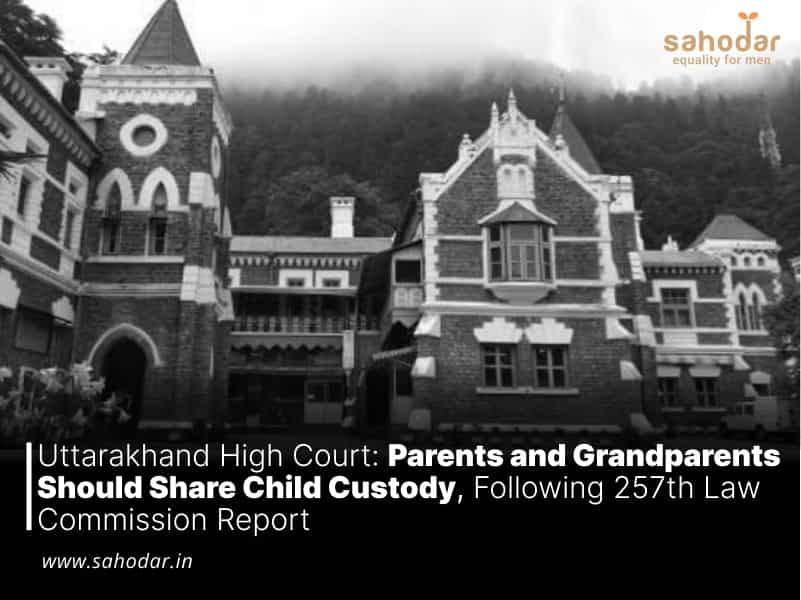The Uttarakhand High Court has instructed Family Courts to adhere to the suggestions outlined in the 257th Report of the Law Commission concerning modifications in guardianship and custody regulations for child custody cases.
In issuing these instructions, the Division Bench comprising Chief Justice Ritu Bahri and Justice Rakesh Thapliyal made the following observations:
“This Court is of the view that at this stage, this direction is necessary to be given that the child’s custody has to be shared by both the parents as well as by the grand-parents so that his emotional growth is not affected. The child has to bear many peer pressure when he grows up.”
During a hearing on a Public Interest Litigation (PIL) filed by Advocate Shruti Joshi concerning the mental distress experienced by children in matrimonial cases, the Court considered a letter from the Ministry of Law & Justice, Government of India, which outlined proposals for reforming the counseling process in Family Courts.
In addition to the aforementioned proposal, the Bench highlighted that the Law Commission, led by Justice AP Shah, has suggested empowering the Court to obtain an ‘independent psychological evaluation’ of the child. The Court would have the authority to seek professional assistance in understanding the child’s psychology.
The Court underscored the significance of shared custody arrangements for the child, encompassing both parents and grandparents. It emphasized the necessity of arriving at mutual agreements delineating the allocation of responsibilities pertaining to the child’s upbringing through the formalization of agreements within a parenting plan. This approach is advocated as preferable to reliance solely on judicial intervention.
“As nine years have gone by and the amendment has not been carried out which may take more time, the responsibility of the next generation who has to get marry and their parents towards the child who was born should be crystallized and should be followed with emotional care and without any ego,” the Court added.
While the Court was disinclined to issue a writ of mandamus for enacting amendments, it unequivocally stipulated that these guidelines must be adhered to in the adjudication of matrimonial disputes, custody cases within Family Courts, and throughout the mediation process.
“In the present case, since Uttarakhand is a hilly State, steps have already been taken for effective mediation and counselling can be done through WhatsApp and other electronic mode so that parties have not to travel from faraway places,” it added.

